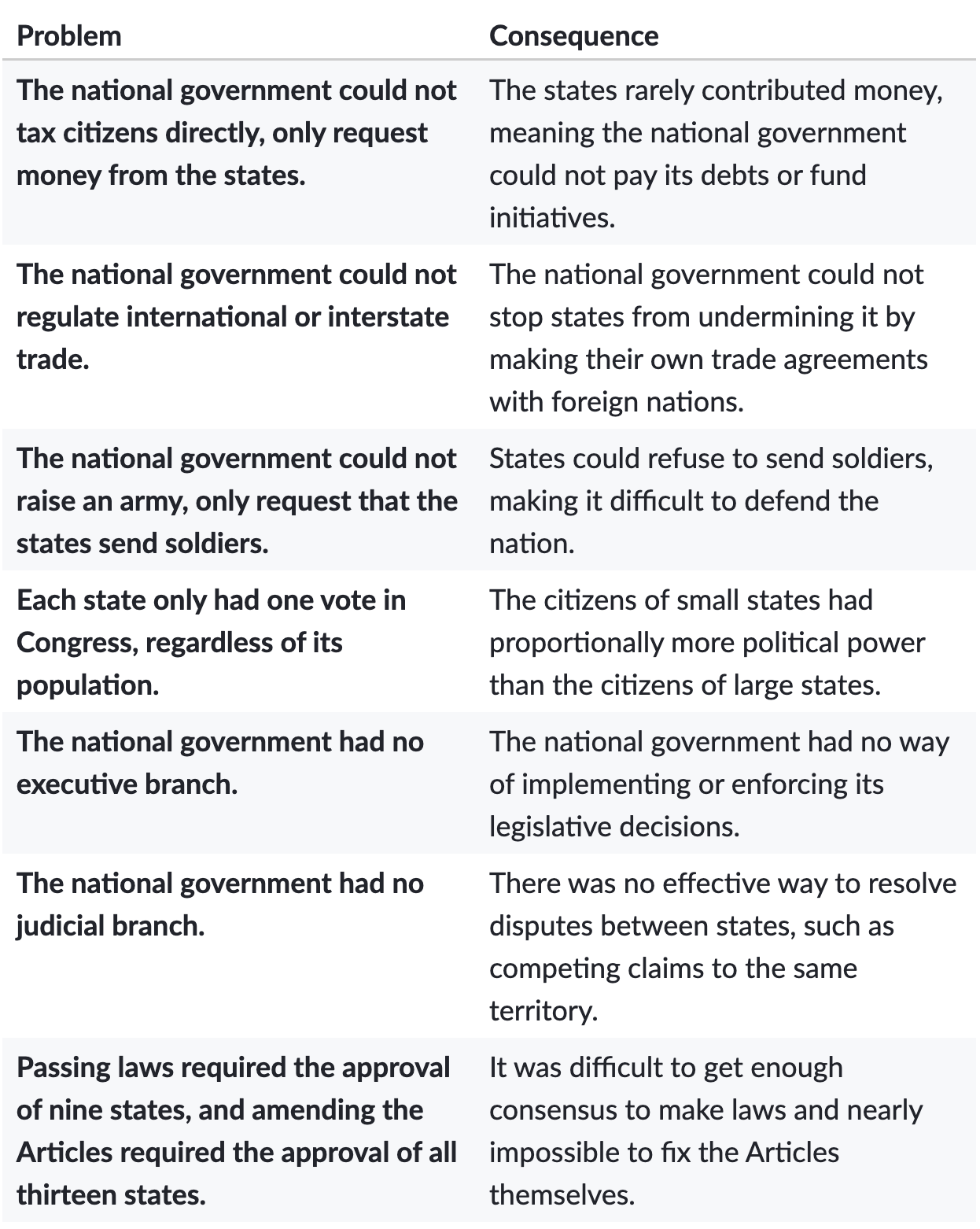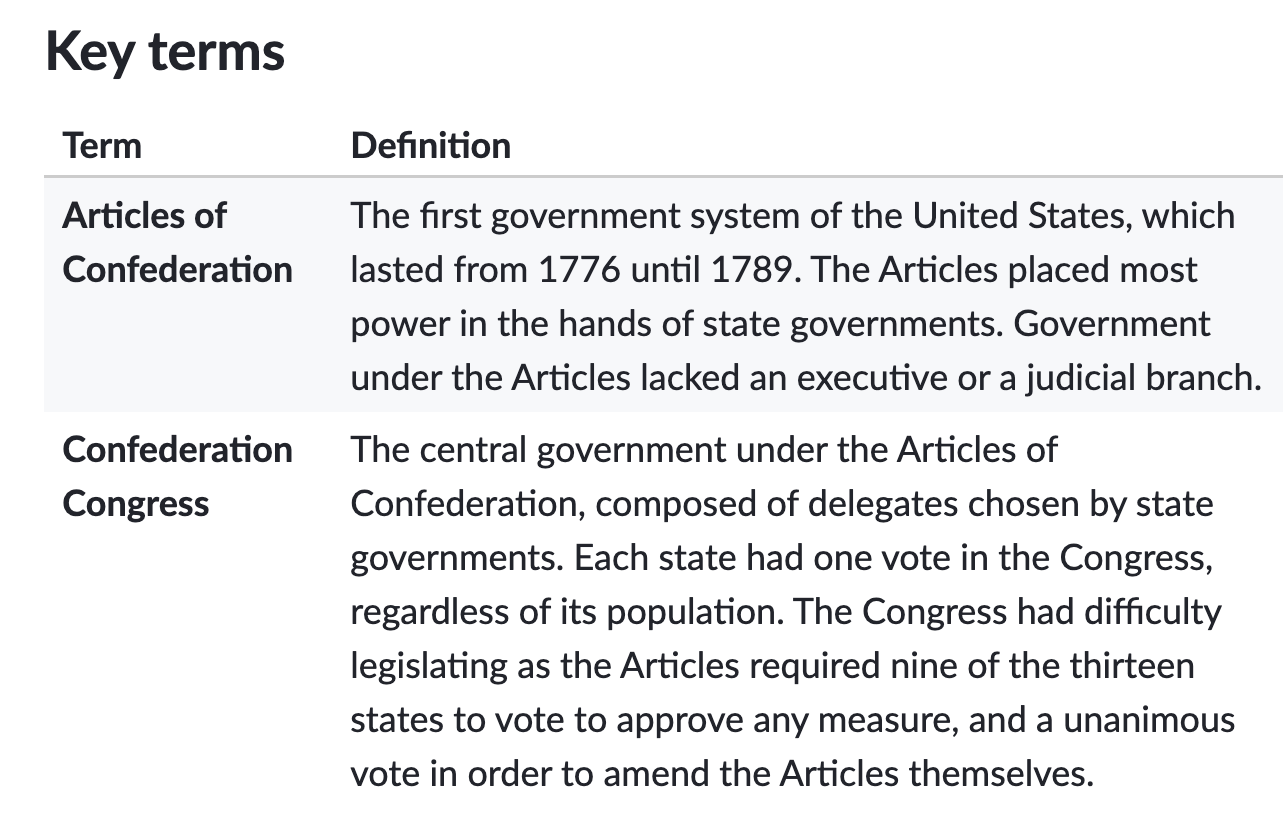AP US Gov S1 Study Guide
UNIT 1
LESSON 1
US gov is based on ideas of limited gov, including natural rights, popular sovereignty, republicanism, and the social contract
LIMITED GOV: Belief that the government should have certain restrictions in order to protect the individual rights and civil liberties of citizens.
framers decided to create a limited gov. based on the ideas of natural rights, popular sovereignty, republicanism, and the social contract.
these pop up in the foundational docs of the US including the DOI and the constitution.
all the framers decided for a system of limited gov.
w this decision they wanted to departure from the British monarchy which the Framers felt violated their rights.
they had some questions like how would the gov function and how would it respond to its people
Thomas Hobbes and John Locke inspired the current system of the US gov.
NATURAL RIGHTS: Unalienable rights - rights that the framers believed all people are born with and can never give up.
JOHN LOCKE described natural rights as the rights to one’s own life liberty and property. Thomas Jefferson got inspired to make the DOI
Jefferson described these rights as life liberty and the pursuit of happiness.
SOCIAL CONTRACT: American society as a whole would agree to give up some freedoms to be protected by the federal government.
POPULAR SOVEREIGNTY: the idea that the government’s power comes from the will of the people or the consent of the governed
REPUBLICANISM: framers believed that the best form of gov is one in which elected leaders represent the interest of the people.
framers wanted the will of the people to be reflected in the daily decisions of government and to prevent a tyrannical government from rising.
How do some of these democratic ideas continue to show up in American politics today?
These democratic ideas still shape American politics today. Limited government is seen in checks and balances, protecting citizens' rights. Natural rights are reflected in the Bill of Rights, while popular sovereignty and republicanism are seen in voting and elected leaders representing the people.
How do these democratic ideas influence the decisions and actions of American politicians?
These democratic ideas influence American politicians by guiding their decisions to prioritize individual rights, limit government power, and ensure public consent. Politicians aim to represent the people's interests, often seeking voter approval through elections. They also work to maintain a balance of power, preventing any branch of government from becoming too powerful.
LESSON 2
Democracy: Rule by the people
3 different types of democracies, participatory, pluralist, and elite democracies
Participatory: Broad participation, closest to the original spirit of democracy, representing the people well, but logistically difficult.
Ex: Ballot measures at the city or at the state level, town hall meetings, initiatives and referendums.
Pluralist: Interest groups, different factions, good ideas surface, no one group domination, but slow decisions or gridlock could happen.
Elite: Limited participation, maybe they are more educated and can make more informed decisions, more decisive than pluralist and participatory, but do they really represent people?
DOCUMENTS TO KNOW:
Federalist no. 10 — An essay written by James Madison, in which he argued that a strong representative government would be able to control the effects of factions.
Brutus No. 1 — An Anti-Federalist essay which argued against a strong central government based on the belief that it would not be able to meet the needs of all US citizens.
Constitution(1787) — The fundamental laws and principles that govern the US. The document was the result of several compromises between Federalists and Anti-Federalists surrounding the ratification of the Constitution.
Which model of democracy does Federalist No. 10 describe? How do you know?
Federalist No.10 describes a pluralist democracy as he talks about how factions (interest groups) can be controlled by a strong representative government.
Which model of democracy does Brutus No. 1 describe? How do you know?
Brutus 1 describes how a participatory democracy is able to meet the needs of all US citizens, and argued against a strong central government.
LESSON 3
The Articles of Confederation, drafted after the Declaration of Independence, created a union of states with limited central government. Each state retained its sovereignty, freedom, and independence. However, Shays' Rebellion highlighted the weaknesses of this system, leading to the drafting of the U.S. Constitution and a stronger central government.
it comprised the US’ first constitution, lasting from 1776 until 1789. The Articles established a weak central government and placed most powers in the hands of the states.
Shay’s Rebellion: uprising of Revolutionary War veterans in Massachusetts that both the state and national government struggled to address due to a lack of centralized military power. This illustrated the NEED to create a stronger governing system.
The US transitioned from colonies to a nation, aiming to avoid abuses by a strong central government.
The Articles of Confederation created a loose confederacy prioritizing state sovereignty over national power.
The national government could coin money, run the post office, and negotiate but relied on states for funds and soldiers.
Each state had one vote in Congress; passing laws required 9/13 states, and amendments needed unanimity.
Economic issues: no power to tax, regulate interstate commerce, or impose tariffs, leading to debt and worthless currency.
Military issues: no power to raise a national army, demonstrated during Shays’s Rebellion (1786–1787).
Shays’s Rebellion exposed these weaknesses, leading to the 1787 Constitutional Convention to revise governance.

LESSON 4
Some people were against the ratification of the Constitution —> examples
FED NO.10 - James Madison
a well constructe
d union needs to break and control the violence of factions
problem of majority rule
He doesn’t think too highly of participatory democracy
pro elite democracy, wants a chosen body citizens whose wisdom will be the true interest for the country
in a large republic ur more likely to find more fit reps
saying the consittution has a good balance
he believes a republican gov can govern better than a pure democracy
hes saying if we dont have enough pluralism we will not have enoiugh points of view
very pro pluralism
saying if we have many pluralist parties, one party cant take over the whole thing
BRUTUS 1 - Brutus
central gov has too much power, makes states irrelevant
it’s not good for all those 13 states to become 1
against pluralist democracy
in order for a gov to work, there should be similar interests with the people

LESSON 5
constitutional convention
more than a decade after DOI
articles of confederation was more of a limited governemnt
dec of independence to revolutionary war was a “league of friendship”
they ddint want tyranny
virginia plan: people secretly met and wanted a bicameral or a two room
consisted of a lower house which were directly elected
consisted of a upper house which were appointed
NJ Plan gave 1 vote to each of the states so small states would have the same rep as large staets
unicameral legislature
delegates came up with the great connecticut compromise
lower- house of reps each state has reps based on pop, directly
upper - senate, and appointed
electoral college